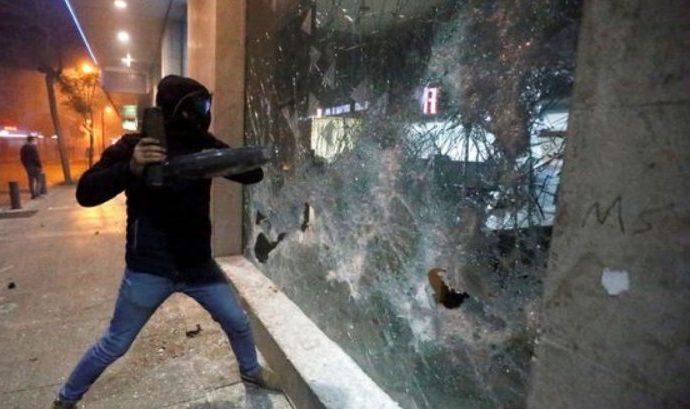BEIRUT, Sept 14 (Reuters) – Savers held up two banks in Lebanon on Wednesday to demand access to their own deposits frozen in the country’s paralysed financial system, underlining desperation among citizens unable to access savings since an economic crisis began in 2019
There were similar incidents in Beirut in August and in eastern Lebanon in January.
The result of years of state corruption, waste and unsustainable financial policies, the World Bank says the crisis is one of the worst globally since the mid-19th century.
Just how bad is the situation?
* Gross domestic product plunged to an estimated $20.5 billion in 2021 from about $55 billion in 2018, the kind of contraction usually associated with wars, the World Bank says.
* The Lebanese pound has lost some 95% of its value, driving up prices and demolishing purchasing power in the import-dependent country. A soldier’s monthly wage, once the equivalent of $900, is now worth less than $50. Poverty rates have sky-rocketed in the population of about 6.5 million, with around 80% of people classed as poor, the U.N. agency ESCWA says.
* Big lenders to the state, which defaulted on its hard currency debt in 2020, Lebanon’s banks have frozen ordinary depositors out of dollar accounts and severely limited all withdrawals. Withdrawals in local currency apply exchange rates that erase up to 95% of their value
* A World Bank report said in August “a significant portion” of savings had been “misused and misspent over the past 30 years”. A visiting U.S. official said last year the Lebanese people deserved to know where their money had gone.

* The financial system has suffered eyewatering losses. The government estimates overall losses at around $70 billion. The deputy prime minister said in March the figure was expected to grow to $73 billion while the crisis is not addressed, yet the government has yet to enact any recovery plan.
* With Lebanon reliant on imported fuel, power is in short supply. Households are lucky to get more than a few hours a day. Fuel prices have soared as authorities gradually lifted subsidies, entirely ending them in September. A ride in a shared taxi, a popular form of transport, cost 2,000 pounds pre-crisis but now costs 50,000.
* Lebanese have emigrated in the most significant exodus since the civil war. Believing their savings are lost, many have no plans to return. A 2021 Gallup poll found a record 63% of people surveyed wanted to leave permanently, up from 26% before the crisis.
* Among those leaving are doctors. The World Health Organization has said most hospitals are operating at 50% capacity. It says around 40% of doctors, mostly specialists, and 30% of nurses have permanently emigrated or are working part-time abroad.
* Officials and the media talk of Lebanon becoming a “failed state”. Public services have ground to a halt. President Michel Aoun warned last year that the state was “falling apart”.
(Reuters)


Leave a Reply
You must be logged in to post a comment.